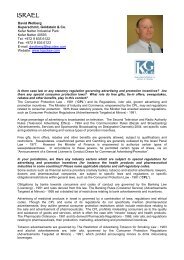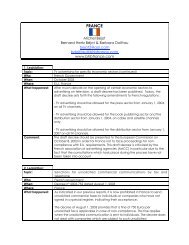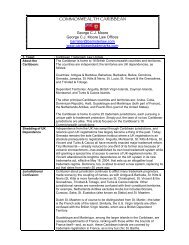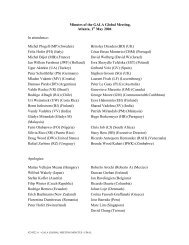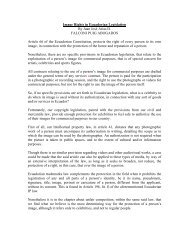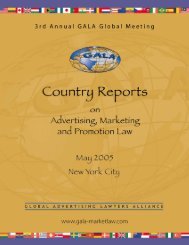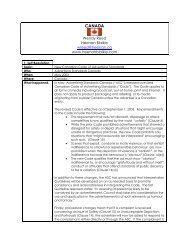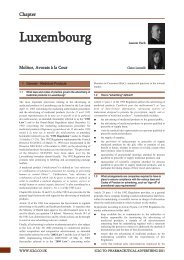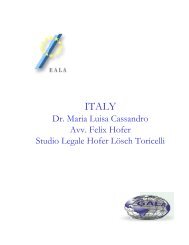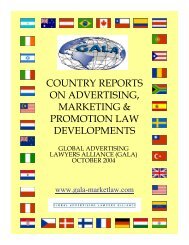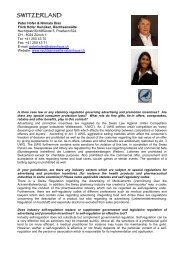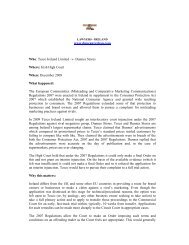International Advertising Clearance - May 2004 - GALA
International Advertising Clearance - May 2004 - GALA
International Advertising Clearance - May 2004 - GALA
Create successful ePaper yourself
Turn your PDF publications into a flip-book with our unique Google optimized e-Paper software.
COLOMBIA<br />
Ricardo Duarte Duarte<br />
Duarte Garcia & Asociados – DG&A -<br />
rduarte@col-law.com<br />
Q: Is advertising regulated on a federal or regional level (or both)?<br />
A: National level.<br />
Q: Does the advertising industry in your country engage in any form of self-regulation?<br />
A: Yes<br />
Q: If yes, how does the self-regulatory process work? Is it widely used? Are decisions rendered in<br />
writing? Are they reported anywhere?<br />
A: The National Commission of Self-regulatory <strong>Advertising</strong> (CONARP) is the selfregulatory<br />
private body. The CONARP operates within code framework of an ethical<br />
nature. Any public or private entity or individual may present its complaints to the body<br />
or adhere to the Ethical code, previous acceptance in writing to conform to the code,<br />
comply with its regulations and follow its decisions. Sanctions are decided after a nonregulated<br />
internal procedure and range from suggesting corrections to the ad;<br />
suggesting suspension of the publication; admonishing in private or in public the<br />
participants in the ad; inform the media on its decisions so that they can count on<br />
judgement elements regarding publication; requesting to member associations to<br />
impose sanctions to its affiliates.<br />
Q: Does your country permit comparative advertising?<br />
A: Yes<br />
Q: If yes, what are the major restrictions and regulations with respect to such competitive<br />
comparisons?<br />
A: After the issuance of Law 256 of 1.996 on Unfair Competition there is no further<br />
discussion that comparative advertising messages are permitted in Colombia, provided<br />
that what is stated in the communication is objectively true, verifiable and that the<br />
comparison refers to aspects that are comparable.<br />
Q: Is pre-existing substantiation required for claims made in an advertisement?<br />
A: Yes<br />
Q: Are there any products or services that cannot be offered in certain media?<br />
Television: No<br />
Radio No<br />
Internet No<br />
Print No



